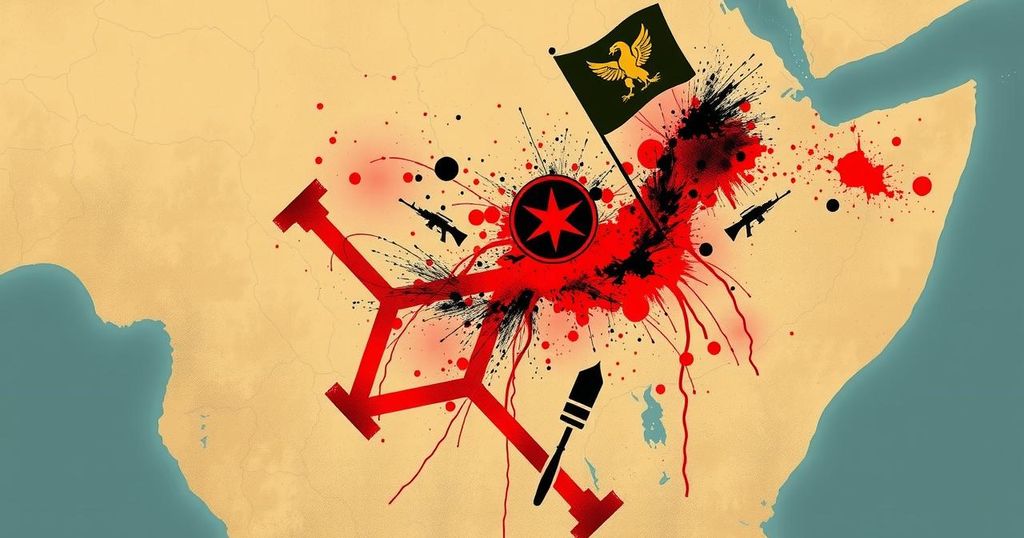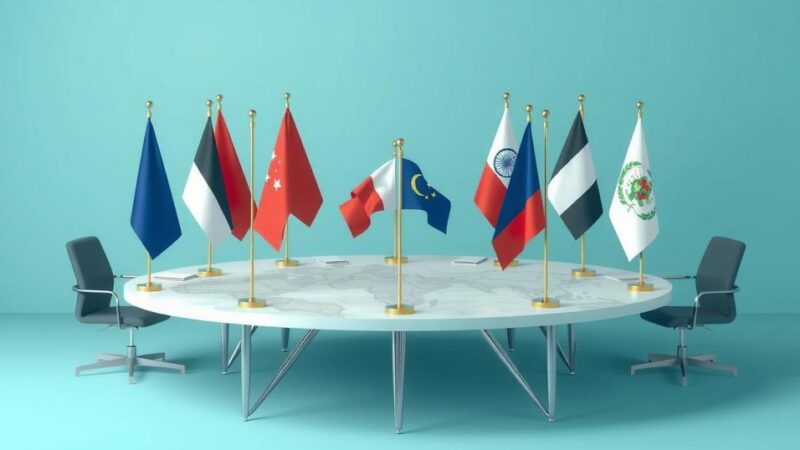The article discusses the intensified conflict in Sudan following a power struggle within the Armed Forces, leading to grave humanitarian violations and external interventions by Iran and Turkey. It highlights the international community’s ineffective response, the struggles of civilian forces, and urgent calls for action to address genocide and protect civilians. It emphasizes the need for accountability and direct support to victims of violence in the ongoing crisis.
In April 2023, conflict erupted in Sudan between the Armed Forces and the Rapid Support Forces, fueled by a power struggle and the influence of Islamist factions within the Army. This turmoil has escalated into a humanitarian disaster, prompting intervention from regional powers. Notably, Turkey has backed Islamist militias, whereas Iran supplied advanced weaponry to the Sudanese Army, intensifying the violence and humanitarian crisis.
The humanitarian implications have been severe, with reports of egregious violations against civilians, including systematic executions, widespread sexual violence, and intentional starvation. International responses have been ineffective, limited to diplomatic condemnations, as evidenced by organizations like Human Rights Watch and Amnesty International documenting widespread atrocities in areas controlled by the Sudanese Army.
The military’s alliance with extremist militias, along with Iranian support, has bolstered its capability, resulting in a rise in war crimes and civilian suffering. Tactics employed by the Army, such as indiscriminate bombing and the use of barrel bombs, reflect a troubling trend reminiscent of previous conflicts in the region.
Iran aims to solidify its influence in the Red Sea through its backing of the Sudanese Army, while Turkey’s support of extremist groups signifies a competition for regional dominance, compounding the suffering of the Sudanese populace. The Army’s persistent rejection of peace initiatives illustrates its intent to prolong the conflict, raising concerns about potential regional and international interests in maintaining the instability.
Civilian forces in Sudan find themselves under siege, as both military factions disregard their perspectives and demands. Marginalized and overshadowed by military strategies, these forces face an uphill battle for political recognition and support from the international community.
The atrocities occurring within Sudan exemplify a lethal combination of genocide and ethnic cleansing, with rapes and public displays of violence terrorizing the population. The failure of the global community to respond adequately has allowed these crimes against humanity to continue unabated.
The international community bears the responsibility to take immediate action, such as imposing sanctions on military leaders and perpetrators of war crimes, halting aerial bombardments, and establishing a mechanism to document and address these violations. The urgency of the situation cannot be overstated; proactive measures must be enacted to prevent further human rights abuses and support the victims of this conflict.
The ongoing conflict in Sudan is marked by severe humanitarian violations, exacerbated by the international community’s passive response. While the Sudanese Army’s alliances with extremist militias and external powers continue to fuel violence, civilian forces struggle for recognition amidst escalating atrocities. Urgent international intervention is necessary to safeguard human rights and prevent further genocide in Sudan, underscoring the need for a robust and immediate commitment from global actors to end the crisis.
Original Source: www.atalayar.com






